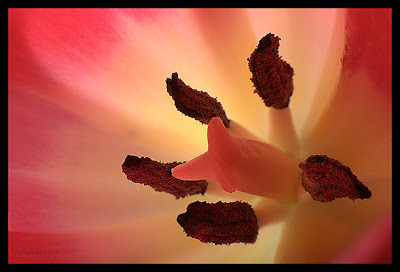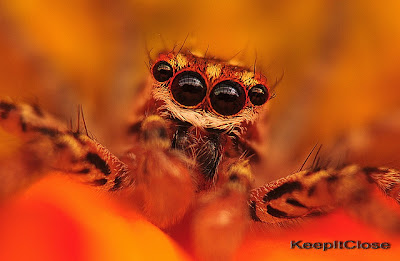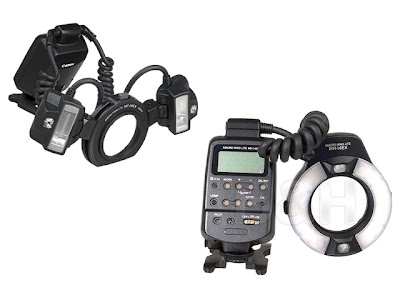Macro photography is one genre of photography where the photographer’s lighting skill is put to ultimate test. The relative small size of subjects means you could easily get away with using small strobes or flash units and get pleasing light quality. But the relative lack of depth of field combined with the small working distance from subject to the tip of the lens will make matters much more complicated than you ever imagined.
 |
| Photo By fs999 |
With proper lighting you could enhance the beauty of your subjects as well as add a touch of drama to your macro photography.
Modern day DSLR’s coupled with the high quality macro lenses capture even the tiniest details of the subject being photographed. There are specialized macro lenses which reach up to 5X macro magnification, bordering the territory of a dedicated macro and a microscope. In order to capture this high level of detail, the lighting should be just right and that makes lighting especially important for macro work.
Why is lighting especially important for macro photography
Modern day DSLR’s coupled with the high quality macro lenses capture even the tiniest details of the subject being photographed. There are specialized macro lenses which reach up to 5X macro magnification, bordering the territory of a dedicated macro and a microscope. In order to capture this high level of detail, the lighting should be just right and that makes lighting especially important for macro work.
 |
| Photo By fs999 |
Shooting Macro Indoors
While we could shoot some subjects outdoors, macro photography of the more serious kind could only be done indoors. Shooting indoors puts the photographer in complete control of the various elements like wind, lighting, light placements, controlling the ambient light etc. It is also easy to photograph subjects of which movements should be restricted e.g. insects. Also the use of various specialized accessories like triggers that are activated by light, sound a laser beam etc is more effect indoors than outdoors.
 |
| Photo By lilcrabbygal |
Shooting Macro Outdoors
Doing macro photography outdoors could be quite a challenge, but there is one thing that works in your advantage, the midday sun with its harsh light which is generally shunned by photographers in other streams could be the ideal light for you to shoot macro. It enables you to use the small apertures often needed to obtain sufficient depth of field. Always watch out for wind as even the slightest movement of your subject could through your shot out of focus. Weather is an important factor while shooting outdoors because it can change quickly and alter the lighting and the mood of your shot.
 |
| Photo By chavals |
To flash or not to flash
Whether to use flash or not depends on many factors like the nature of the subject, ambient light levels, the desired effect in final photo (whether to freeze action or show movement) etc.Using flash allows a photographer to work with faster shutter speeds and smaller apertures. It also reduces the risks of camera shake. You could either use your flash as the main light source or use it as a fill light to help capture details in shadow areas and reduce contrast.
 |
| Photo By pachytime |
Pop up flash vs External flash
The pop up flash which is fitted on to your camera body is more or less useless for macro photography, as the subject sits only millimetres away from the tip of the lens, light from the pop up flash may not reach it due to the shadow caused by the lens itself. Hot shoe mounted flashes are useful, more so if they are mounted on flash brackets and connected to the camera via a sync cord.
 |
| Photo By chavals |
Specialist Macro Lighting Tools
There are dedicated flash units specially built for macro photography, they are the ring flash and the twin flash. Both canon and Nikon have their own variants of these flash units. The ring flash has two semicircular flash tubes while the twin flash has two individual flash heads. Twin flash allows the photographer more flexibility as to the position and control over lighting.
 |
| Macro Twin light and Macro Ring light from Canon |
In the next article we will discuss about Photography - Macro Photography - Macro Photography - Tips for Point and Shoot Digital Cameras